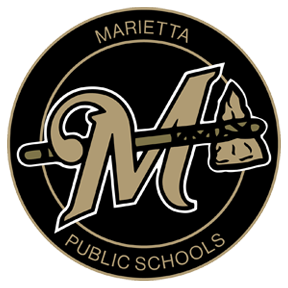Seventy-five years ago, a high school diploma and a little hard work was enough to ensure success for the average Oklahoman. Well, things have changed. Success in life after high school requires a different and ever increasing skill set than it did in years past. By 2025, 75 percent of jobs in Oklahoma will require education or training beyond what a high school diploma provides.
For these reasons and more, beginning with the 19-20 freshman class, all Oklahoma public schools are mandated to have an ICAP curriculum. ICAP, or Individualized Career Academic Planning is designed to begin with a student’s interests, aptitudes, and abilities and use them to create a plan that helps that student to set and reach goals for post-secondary college and/or career.
The mandate requires that each student have a plan that includes interest surveys; a written plan that is periodically reviewed and updated; scores from applicable required state and federal assessments; experience in work environments including apprenticeships, internships, job shadowing, and others; and coursework that will help the student reach their post-secondary goals.
An ICAP allows students, educators, and families to collaborate to develop goals that evolve with the student’s changing interests and growth.
Although the ICAP mandate is new this year, the concept of helping students with career planning isn’t new to Marietta Public Schools.
“This is something that we’ve been doing informally for quite a while,” said high school counselor Kim Fraire, “and we’ve had some success. All the state’s ICAP mandate has really done is give us the impetus to create a more concrete plan for each of our students.
“Our kids have ability, but often don’t have direction. That’s what the ICAP mandate is trying to do—match up the kids with classes and other things that we can do to help them choose, set, and reach college and career goals. We’re thinking about what types of classes we can implement, who we can bring in to speak to our kids to create that spark of interest, job shadowing and internships. We know that if our kids have direction they’re more likely to stick with it, and that’s where the ICAP comes in.”
The state may require that the ICAP begin with this year’s freshmen, but Marietta is ahead of that curve, too. Due to the planning of principal Carrie Tucker and counselor Jan Hayes, middle school students at Marietta are already involved in the ICAP process.
“Our eighth graders have completed the OK Career Guide, which includes an interest inventory, career exploration, and a course schedule planner, as well as looking at college costs, and participating in a virtual career fair,” said Hayes.
“One of the most meaningful things we’ve done is start a student career development checklist that begins in the seventh grade and follows a student through senior year, letting them know what steps they need to be taking and when they should be taking them to ensure their success.”
Additionally, the 8th graders have taken the Pre-ACT, and will be spending some time with Hayes in just a few weeks taking an in-depth look at those scores and what they mean. Hayes will also be meeting with the middle school staff to discuss how those results can be used to improve instruction.
College visits are also in the plans for both seventh and eighth grade classes, and other ICAP activities will be done with sixth graders, too.
“I’ve really spent a lot of time with the eighth graders talking about how they need to start now with their course planning so they can put themselves into a position to be able to be in career tech or concurrent college classes by their junior and senior years in high school,” said Hayes. “I try to stress to them that they can’t wait until high school to begin planning for their future.”
Marietta High School is building on these initiatives and seeks to take them a step further.
Already the high school partners with Southern Tech and Murray State College in providing students with the opportunity to take classes. They’ve also partnered with various employers that allow students to take part in internships and work-release programs. The high school also holds career presentations, college and career fairs, and takes students for college visits.
Future plans are to offer ICAP classes where students will use college and career research to complete their own plan, which will be a work in progress that is updated frequently. The high school is also seeking to partner with local businesses who are willing to give seniors the opportunity to job shadow different positions.
“We need more internships and job shadowing opportunities,” said Fraire, “because we need to be able to find something where there is genuine interest and it’s really applicable to each individual student. This way kids can either find out that a particular career really is a good match for them, or see that what sounds great in theory may not be so great in practice. Job shadowing and internships really are a great way to help kids take a realistic look at what they can really fit into.”
According to Fraire, what the ICAP boils down to is helping kids take a serious look at preparation for life after high school, whether that’s college, a career, or both.
“This is all about helping kids find the opportunities they need,” she said, “to recognize them for what they are, and to take advantage of them. If we can help our kids do that, then our school system has succeeded.”
